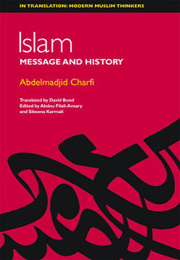1 - The Prophet's Successors
from Part Two - The Message in History
Published online by Cambridge University Press: 12 September 2012
Summary
There were a number of possible scenarios for the transitional period after the Prophet's death which saw the message of Muhammad begin to take on a socio-political dimension.
(1) A return to the status quo prevailing in the Hejaz before Muhammad. This was inconceivable in the light of the new situation created by the preaching of the Prophet in the Hejaz and in the Arabian peninsula, with the inter personal and collective solidarities created by Islam transcending traditional tribal structures. The initial signs of social fragmentation had already appeared before the beginning of Muhammad's preaching, accompanied by a vague yet powerful yearning for change. In the light of these factors, it was inevitable that some kind of centralised decision-making process should begin to take form. The tribe of the Quraysh, because of its prestige among the Arabs, its illustrious history and its economic power had a strong chance of playing a central political role after the Prophet's death. Tribal loyalties may also explain the revolt known as the ridda (apostasy) which broke out among tribes outside the Hejaz at the time of Abū Bakr. This movement was an expression of an obsolescent tribal solidarity which had begun to disintegrate. Even if Muhammad and the Muslim community had not decisively confronted the ridda, it was doomed to fail.
(2) Another possible outcome could have been the adoption (for their own ends) of the preaching of the Prophet by the rich and powerful members of the Quraysh, although their initial resistance rendered this unlikely. The sub sequent course of events demonstrates that the Ummayads adopted this course of action once the passage of time had drawn a veil over their past record.
- Type
- Chapter
- Information
- IslamBetween Message and History, pp. 89 - 100Publisher: Edinburgh University PressPrint publication year: 2009



